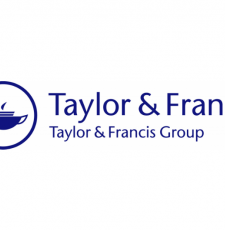
EIFL highlighted principles and key issues that matter for libraries in written comments on a Good Practice Toolkit for Collective Management Organizations (CMOs) being developed by WIPO.
CMOs are organizations that manage rights on behalf of authors, performing artists, producers and other rightsowners. The type of CMO with which a library typically has the most dealings is a Reproduction Rights Organization (known as an RRO) that grants licences for the making of copies (photocopying and/or digital copies).
The draft WIPO Toolkit covers topics such as the provision of information about the CMO and its operations, governance, financial administration and distribution of revenue, members' rights to fair treatment, relationship between the CMO and licensees (such as libraries).
EIFL welcomes the opportunity to provide comments, that are drawn from the EIFL guide on how to negotiate with a Reproduction Rights Organization (RRO), and the experience of librarians in EIFL’s network. The comments set out general principles for fair dealings between CMOs and libraries, as well as specific comments designed to help equalize relations.
Four Basic principles
To underpin fair dealings with libraries, four basic principles should be observed. The CMO should have a firm legal basis, and be independent of government. The licence on offer should extend copying permitted by national law (not substitute for provisions in national copyright law) and, if the licence concerns content in the library, the library must be included in the licence negotiations.
Equalizing relations
To help foster good long-term relations with customers such as libraries, EIFL also made suggestions to expand the section in the draft WIPO Toolkit on the relationship between CMO and licensees (who collectively pay large sums of money to the CMO), principles governing licensing of users, and rules for setting of tariffs.
The section on financial administration and distribution of revenue is especially important. We welcome the recommendation in the draft Toolkit that a CMO should not use Rights Revenue for purposes other than distribution to rightsholders. This would help avoid the scenario where, for example, CMO activities aimed at lobbying for copyright legislation (to maximize CMO revenues) being funded through licence fees paid by institutions, such as publicly funded libraries, that depend on copyright exceptions to properly fulfil their mission.
Next steps
On 31 May 2018 EIFL will attend a consultation meeting organized by WIPO to answer questions on the draft Toolkit and address comments from member states and observer organizations (such as EIFL).
CMOs have an important part to play in the global copyright infrastructure. We hope that the initiative will help raise the bar in building confidence and trust for everyone.
Read EIFL’s comments on the draft WIPO Good Practice Toolkit for Collective Management Organizations (CMOs) being developed by WIPO.
Read the draft WIPO Good Practice Toolkit for CMOs (The Toolkit).
SHARE / PRINT









